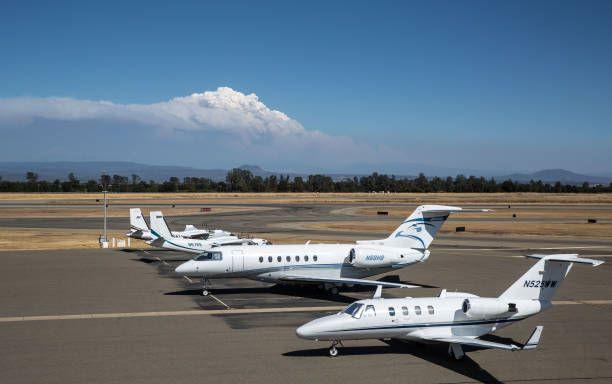
With rising inflation, one may expect that picking the right fixed-base operator would be based on one issue alone--the price of fuel.
While it is certainly an important consideration in determining which FBO to select, it can be easy to overlook other items, which you may be grateful to remember as predicaments are bound to arise.
Whether you are an owner/operator or getting your start in the dispatch department, here are important considerations to make when selecting an FBO.
Fuel Prices: Let’s get the obvious out of the way. It has already been said that fuel prices are a significant factor in determining one’s bottom line. In fact, one may even fly to another nearby airport to satisfy this box on the checklist. Just because this is the first item on the checklist does not necessarily make it the most important one, but it can certainly cause an operator to lean heavily toward one option over another. If there are two FBOs on a particular field, and one FBO has fuel that is less expensive per gallon than the other, before immediately choosing the cheaper facility, consider the other options below.
Hours of Operation: A savvy operations team knows that an FBO that is open 24 hr. tends to be less expensive than a facility with more restricted hours. That is because if assistance is needed outside of published business hours, there is typically a “callout fee” to have someone stay behind to make sure services can be provided. Not to mention, to keep the lights on past business hours comes at a premium, a cost that will certainly be eaten by you or your company.
Ease of Access: This item is an extension of hours of operation. If a facility is not open 24 hr. and the crew must depart at an odd hour, how do they have access to the aircraft? Is there a gate code or special protocol? Not having access to your aircraft because a gate code isn’t available will certainly cost you more than any amount saved from cheaper fuel.
Ramp/Hangar Space: Usually this may only be a minor consideration. After all, if there is space available for your aircraft, then the problem is solved, right? In many cases, the answer is yes, but not all the time. A prime time to consider this step is during the winter when it is desirable to have an aircraft parked in a hangar to avoid the increased time, cost and headache of deicing procedures.
Quality of Services: This one is a must-have, especially if an aircraft is on a charter mission. Access to support elements, such as ground transportation and catering, are essential. Failing to prepare for these details is enough to turn a charter trip into a nightmare, so having an FBO that is on top of these elements is very worthwhile. Certain FBOs have a reputation for being exemplary in this category, while others have just the opposite notability.
Loyalty Programs: Larger FBO networks may have loyalty programs that offer many perks for their customers. They typically set up tiers in which operators maintain a certain percentage of frequency at their facilities, which leads to fuel discounts, lower fees and priority handling. Therefore, it can be advantageous for operators to choose an FBO based on either building or maintaining that status. The issue here is, if you are a top-tier loyalty member to a particular FBO network, opting not to use their facility if one is present at an airport can lead to a lower percentage of visits, and thus can risk downgrading, or even eliminating, one’s coveted status altogether. So even if the FBO you have status with doesn’t have the cheapest fuel on the field, using them still may be a better idea, as getting or maintaining status is worth it.
Every operator has unique needs and values, so be sure to consider all issues before choosing an FBO. The next time your aircraft visits an unfamiliar airport with a variety of FBO options, be sure to keep this checklist in mind so the experience is as cost-effective and seamless as possible.





